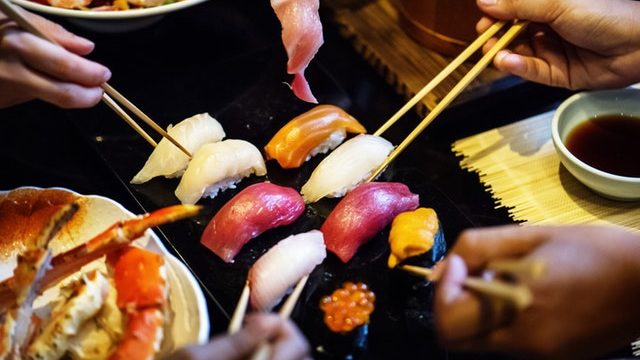“Tell me what you eat, and I will tell you what you are” – Anthelme Brillat-Savarin
Sure, you’ve heard a million times, especially around the holidays. Millions of Americans make the same vow. Diet and exercise. But what if I told you that diet and exercise isn’t the answer?
Imagine you lived during the Great Depression, food was scarce, and high U.S. equity valuations even scarcer. You’re depressed, greatly, and you could probably go for a big warm slice of apple pie right now, or at least some comforting mac and cheese. But alas, circumstances are such that such that you must sustain yourself on sawdust and sewer water. Correlation? Nay, Causation.
Throughout all of human history the relationship between emotion and food has been one fraught with complexity. A difficult divorce, for example, may have you cursing your ex’s name while downing disgusting globfuls of peanut nutter butter choco chip cookie dough ice-cream. You’ll show your ex-wife what a real pig looks like. Meanwhile, a grand-niece’s birthday party could result in similar gorging, albeit, less pitiful reasons. Likewise, large losses in the stock-market elicits a similar gastrointestinal response from most. The gut reaction to binge on high-fat, high-sodium, comforting foods, especially in times of deep sorrow and regret, is in fact a fine-tuned bio-physiological wealth-protection mechanism.
While traditional investors have been taught to turn their nose to their primal instincts and pat themselves on their proverbial backs at the slightest hint of pitiful loss-induced gluttony – I would suggest such actions are in fact, counter-productive for the self-preservation and psyche of the investor.
To drive this point home, let us objectively consider the three cases an investor may face at the end of a trading day. The intelligent design behind our instinctive response will become clear.
- Gained some money.
- Imagine the situation. You’ve just won the lottery and it’s raining money. You’ve never had such a fat wallet in your life. Such is an occasion for celebration. Popular culture is full of symbolism comparing calorically dense food to money. Terms like “Bringing Home the Bacon” and “Breadwinner” date as far back as 1924. Language changes, but any linguist could tell you that words have meaning. It’s no surprise then that online investment communities have developed their own shorthand for money, “‘tendies” (short for chicken tenders). While in the past, plain bread or fried pork belly would have sufficed to feed the average American household, this modern era of obesity, a large family sized bucket of Kentucky’s best Fried Chicken will not only boost your mood, but show your haters you’ve truly made it as well.
- Money stayed the same.
- Time is money, and the longer you wait, the less money you have. You’re losing money by the minute and you’re in a tough spot. Thankfully, chicken is affordable and available at a wide variety discount supermarkets. Tyson’s microwaveable frozen chicken tender strips will have to suffice.
- Lost some money.
- As you pull into the driveway of your beautiful white-stone dream-home, adorned a subtle-yet-classy Tesla brand custom Tuscan solar roof you begin to notice something is a bit odd… your wife’s home, and wait, you don’t recognize the second car. Do you guys know anybody who drives a white Maserati GranTurismo with a New Jersey plates? And why is she home so early anyways? Anxious, you cautiously open the front door, weird you remembered locking the door before you left. You’re worst nightmares are confirmed as you hear the unmistakable sounds of adultery fill the haunted foyer. Jokes on her, you lost all the money in your joint bank account today and maxed out her credit stocking up on survival gear, the next Great Depression is coming and you’re gonna be prepared. You’ve got a months supply worth of Tyson frozen chicken in a hidden storage freezer and your wife’s no longer invited.
While the aforementioned examples may be seen as extreme they are not implausible. The instinct to reach for calorically dense foods at inflection points in our bank accounts or net worth is evolutionarily ingrained response. Investing, much like an exquisite meal, has the ability to modify our mood. Eating comforting food after the loss of a large sum of money is a good to way to brighten your day and continue to make better decisions. Perhaps a large stick of butter is all the courage you need to hang onto your dwindling shares of General Electric (NYSE: GE). Allowing the body to store excess caloric input is also an excellent way to protect from downside risk. No money, no food.
